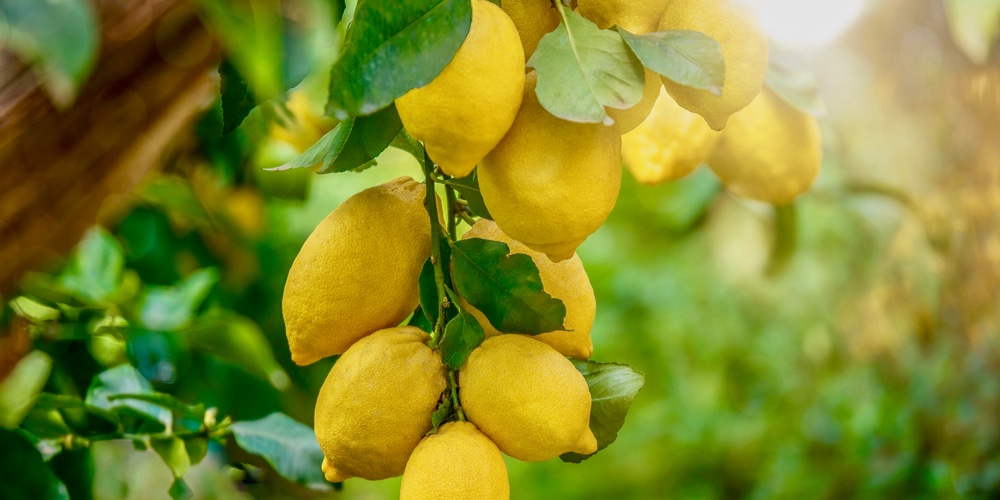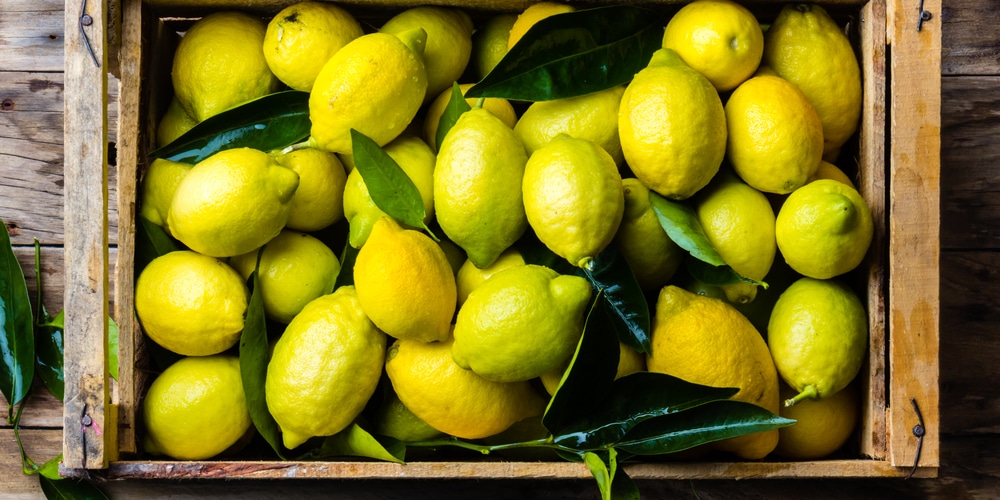A lemon tree is a beautiful addition to any yard or garden. Not only do they add a splash of color, but they also produce delicious lemons that can be used in various recipes. If you are thinking about adding a lemon tree to your landscape, or if you already have one and would like to learn more about how to take care of it, you have come to the right place.
This blog post will discuss everything you need to know about lemon trees. We will cover topics such as how often they fruit and how to make them bear more fruit. So read on for all the information you need!
At What Age Does Lemons Start To Produce Fruit?

If you’re thinking about planting a lemon tree, you may be wondering how long it will take before you can start harvesting lemons. The good news is that lemon trees generally reach maturity within 3 to 5 years. However, if you plant an established tree, you may be able to enjoy fruit a bit sooner. Lemons typically ripen fully after 6 to 9 months.
Of course, different lemon varieties produce fruit at different times of the year. Some lemon trees can even bear fruit year-round. So if you’re hoping to have a consistent supply of fresh lemons, it’s essential to research and choose a variety that suits your needs. But with a bit of patience, you’ll be able to enjoy the delicious fruits of your labor in no time.
How Often Does Lemon Trees Produce Fruit?
Lemon trees are typically in season from late spring to early fall. However, depending on the variety of lemon trees, they can produce fruit year-round.
Eureka Lemons are known to produce fruit thru spring and summer. In contrast, Lisbon lemons produce fruit all year round.
Remember that it takes 6 to 9 months for a lemon to ripen fully, so don’t get too excited when you see fruit form on a tree! There is also the possibility that some lemons will fall off the tree in late spring or early summer, known as the “June drop.” While this may seem like a waste, keep in mind that a single lemon tree can produce hundreds of pounds of fruit each year.
So even if you lose a few lemons to June drop, you’ll still have plenty to enjoy come harvest time. June drop is a tree’s way of conserving energy to put all its resources into ripening the lemons left on the tree. If “June drop” doesn’t happen naturally, you can also do it yourself by thinning out the lemon crop.
How to Make Lemon Tree Bear More Fruit?
Now that we’ve answered the question of how often lemon trees produce fruit, you might wonder how you can make your tree bear more fruit.
Sunlight
The first step is ensuring that your tree is getting enough sunlight. Lemon trees need at least eight hours sunlight each day to produce fruit. If your tree is not getting enough sun, you may need to move it to a different location in your yard.
Watering
Another critical factor in making sure your lemon tree bears fruit is to make sure that it is getting enough water. Lemon trees must be watered deeply and regularly, especially during hot summer. Be sure to check the soil around your tree before watering to make sure that it is not already moist.
Fertilization
It is also important to fertilize your lemon tree regularly. Adding phosphorus-rich fertilizer will help promote fruit production. Be sure to follow the instructions on the fertilizer package, as too much fertilizer can harm your tree.
Pruning
Pruning your lemon tree can also help promote fruit production. Pruning helps to encourage new growth, which in turn can lead to more flowers and fruits. When pruning your lemon tree, be sure to remove any dead or diseased branches and any crossing or rubbing branches.
Look Out For Pests And Diseases
Lastly, it is vital to keep an eye out for pests and diseases that can harm your lemon tree. Common problems include aphids, scale insects, and mealybugs. These pests can suck the sap out of your tree and stunt its growth. If you notice any of these pests on your tree, immediately eliminate them. Yellow leaves is a common sign of problems.
Final Thoughts
Taking care of a lemon tree is not as difficult as it may seem. Your lemon tree will thrive with the right amount of sunlight, water, and fertilizer.
Check on your lemon tree regularly and remove any lemons starting to rot. A Lemon tree, depending on its variety, can produce fruit all year long! Just think of all the delicious lemonade you’ll be able to make!

